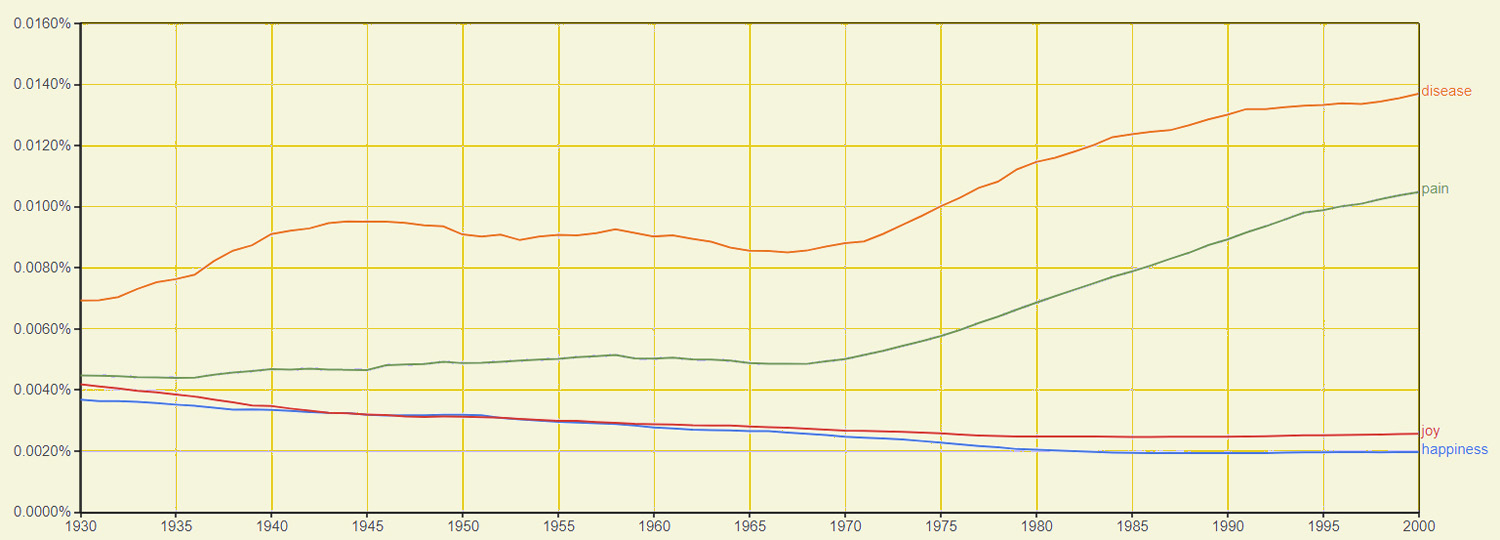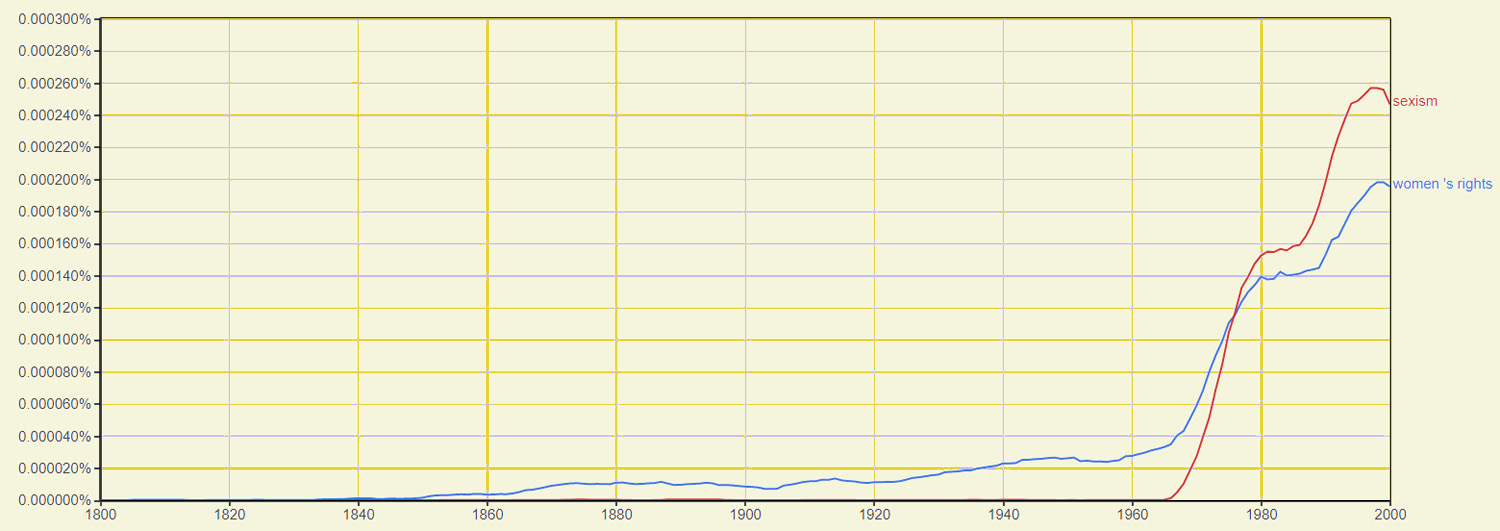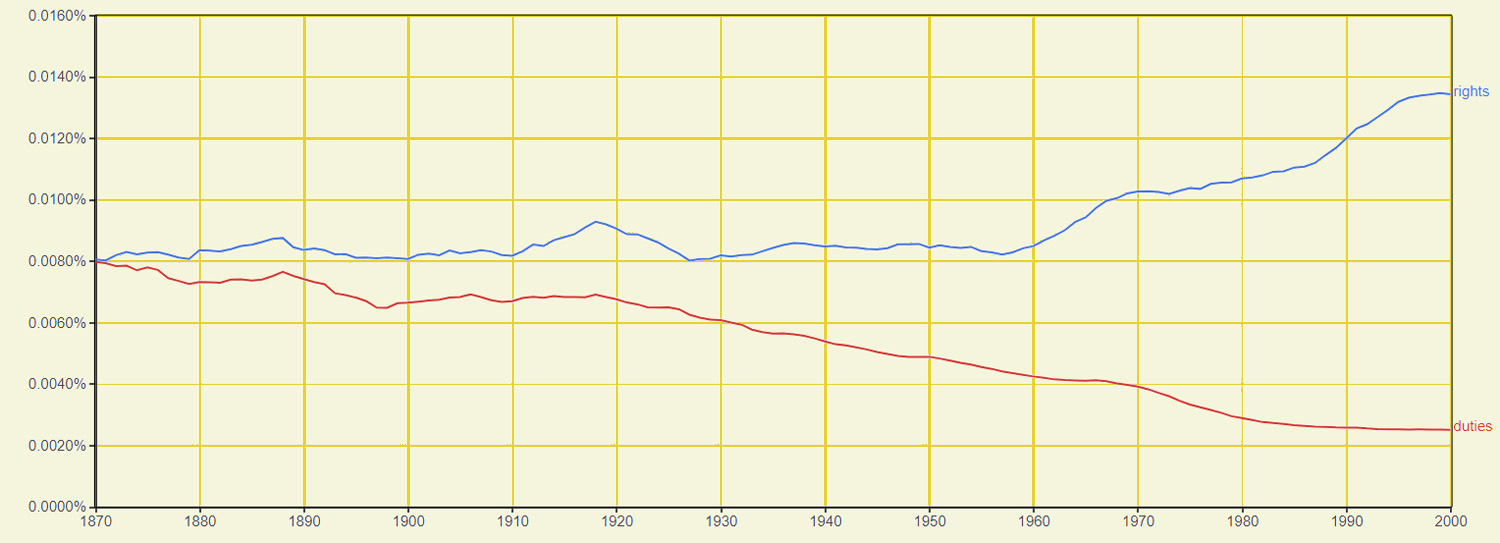To: MWilkerson@fugro.com
From: Scott Sinnock ssinnock@netzero.com 2:18am, August 28, 2012
Subject: Word Histories
Google NGRAMS at http://books.google.com/ngrams
Language: I discovered this web site yesterday and was lost in it for a couple of hours. What a marvelous sociological tool. The very changes in our language are recorded here in a simple, direct way, by word counts in publications and simple graphs. Those guys at Google, Yahoo, and other "indexers" are providing a true revolution in accessibility to human knowledge, diversity, morality, philosophy, geology and any other "y-ending" word, and all others too. I think you might like a tour of human though provided by this site as well, if you haven't already. Just for fun, I suggest these graphs just to get started: enter the words, separated by commas for American English and the period 1930 - 2000 to reproduce the numbered graphs. Language and period of interest from 1500 to the present are selectable on the graphs. (reproduced at right on April 17, 2020, nearly 8 years later)
- happiness, joy (lower two lines), pain, and disease (upper two lines) (1830 - 2000)
- sexism, women's rights (1800 - 2000)
- rights (upper blue line), duties (lower red line) (1870 - 2000)
Gender Rights: Single words are quick and allow explorations for groups of words that plot at the same scale, like those above. Which reminds of what someone attributed to St. Augustine, as I recall "To make a point, you must omit much and exaggerate much". A modern version might be "pay careful attention to your graph axes". These graphs and others suggest to me that perhaps our modern values, at least those we talk about, are not really advancing human happiness, which seems to be the, or at least a major goal of all current and ancient philosophies and as well as nearly universal common pursuits. Graph 2 notes sexism and women's rights were invented in about 1970, along with talk of nurturing, while, talk of manly things slacked; it is indeed the age of female ascendancy. And now we want to go teach Iran's Ayatollah's how they need to treat women, because, you see, we just finally discovered the truth in the 1970's, and you Ayatollah's and Bishop's, CEO's, Augusta Golf Clubs, and other paternalistic thinking misogynists had better change, because we now know the truth, and it transcends morality, it cannot be challenged because it is universal, and Judge Judy, God bless her, knows it. So all you people of tradition, make way, cuz here come us women bearing the banner of human rights and common decency. (I have a page or two somewhere that argues when women won the power to tell their husbands "no", (a very recent thing though as the graph of "spousal rape" shows) (you've heard it shouted from the rooftops "No means NO!"), they won the power to say "only if". Now that's power, and new. And do women want things differently than men? Oops sorry, that's a sexist thing to suggest .Finally, the third graph, rights over duties, boy are we all for more rights these days, Chick-fil-A, anyone?. Anyway, it's a fascinating site, the above graphs and their specific settings are just to get you going; there is a wealth of information in the words. So this missive is for whatever thoughts you get from the above graphs, or ones you find, or none at all. Have fun, I did, I just lost another couple of hours at the site while I wrote this short note.
Definition of NGRAM
In the fields of computational linguistics and probability, an n-gram is a contiguous sequence of n items from a given sequence of text or speech. The items can be phonemes, syllables, letters, words or base pairs according to the application. The n-grams typically are collected from a text or speech corpus. An n-gram of size 1 is referred to as a "unigram"; size 2 is a "bigram"; size 3 is a "trigram". Larger sizes are sometimes referred to by the value of n, e.g., "four-gram", "five-gram", and so on. quote from https://www.abbreviations.com/n-gram
|
NGRAM 1

NGRAM 2

NGRAM 3

|
|
 Index
Index 


